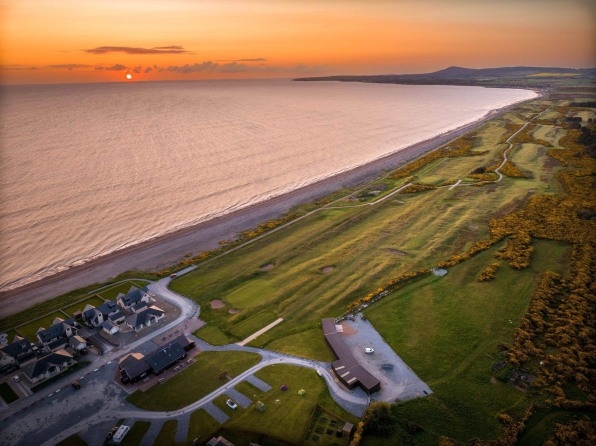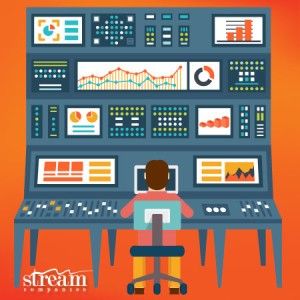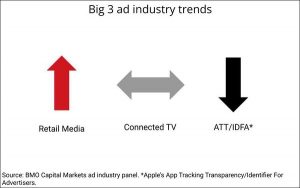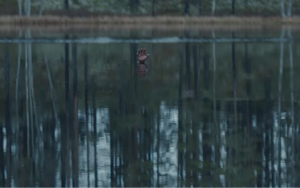By Safi Aziz
We, the people, are taking steps to own the world—starting with a golf course tucked away in a Scottish village called Spey Bay.
The Scottish Wildlife Trust depicts Spey Bay as a “beautiful coastal reserve [where] constant changes caused by the river create a succession of habitats.” Atop this charming reserve is a new habitat: the first-ever golf course enjoyed by an online-first community.
Even if you’ve never played a round of golf (like me), you should still pay attention to what Links Golf Club is achieving. Links bills itself as a “modern golf membership”—and its efforts earned it a nod as one of the Most Innovative Companies in Web3 in 2023. But that undersells what’s happening here.
To learn more, I interviewed Links Chairman Mike Dudas. While this project may look like a token-powered members’ club, it’s really an early signal of how communities may progressively decentralize the built world. Links is covertly a grand experiment in having a direct say over the places we care about and spend our time. At the same time, it’s a novel way to launch and operate membership businesses.
A brief history
On January 1, 2022, Links Golf Club, aka LinksDAO, sold 9,090 membership NFTs, collecting $11 million in the process. The mission? Buy a golf course that could be enjoyed and governed by its members. Recall that this effort came shortly after the vaunted ConstitutionDAO attempted to purchase a copy of the U.S. Constitution, and others started to see the potential for decentralized autonomous organizations—a bedrock principle of Web3—to make inroads into the real world.
With a hefty bank balance, the community was off to tee time. The Links community, though, wasn’t trying to buy any golf course, but rather it wanted one that was:
As the members searched, Links Golf Club matured into a force. It secured discounts with brands like Callaway and TopGolf, held events with golf pros, and built an app for members to play together.
Links Golf Club’s mission evolved from solely buying a golf course to democratizing the sport. Jim Daily, Links Golf Club CEO, said on a Links’s Twitter Space that the vision expanded as it found a warm reception in the golf world.

“The best experiences in golf,” Daily said, have “been whittled down to folks that have a ton of money, the right contacts, and the right influence.” By contrast, “we want to make [those experiences] accessible to the golf masses. We are the golf club for everybody.”
In March 2023, Links Golf Club achieved what it said it would. It beat out traditional buyers and won the bid for the Spey Bay golf course. Now, it is building out membership and redeveloping the course.
Although this was a hole in one, Spey was the first hole. Cooper Sherwin, Links’s head of community, said in Links’s Discord that it plans to “acquire 10 courses by 2030 [with majority in the U.S.].”
There is a long tour ahead.
From ‘degen’ to discounted cash flow
Mike Dudas, chairman of Links, believes that without NFT memberships, the idea wouldn’t have gotten this far. NFTs allowed Links to:
A criticism of many Web3 projects is that they lack sustainable business models. That’s why Links released a non-NFT “base” membership that costs $199 per year. Just as Priority Pass did with airport lounges, Links created a distributed membership of golf courses. Even if you can’t make it to Spey Bay, members can access a network of 100-plus courses. This way, Links doesn’t need to rely solely on the traditional golf course business model of purchasing courses and collecting initiation fees and dues. This recurring cash flow will allow it to purchase more courses without needing to drop another NFT.
Reclaiming control
For most of us, especially those who have no interest in golf, all this may not seem monumental. You may be thinking, “So what?! A bunch of crypto degens can hit some balls.” Allow me to reframe: If you have ever rented an apartment or bought a house, you know how much of the outcome is relegated to centralized parties. Landlords, banks, and asset managers make the decisions about our surroundings for us. We have little say in how we live, what our community is like, and what our impact on the planet is.
The blockchain is allowing Links to test a new model for launching and operating membership-based businesses with greater alignment and community input. Ryan Wyatt, President of Polygon Labs, highlighted LinksDAO in his testimony to Congress in early June as a practical application of blockchain technology,
“[LinksDAO] purchased a golf course and uses a blockchain-based membership pass, which allows participants to vote and make decisions regarding the membership, the course, and the club. These types of web3 organizing mechanisms give members greater participation rights as well as more transparency about the conduct of the group . . . .” [Emphasis mine.]
All Links NFT holders got to choose whether or not Links would bid on Spey Bay in the first place. In fact, 80.5% of holders voted on the proposal. This revealed that the community doesn’t just want to enjoy the benefits of the club: It wants a say in how things are run. Subcommittees make decisions in key areas. For example, the tech subcommittee voted to lay down fiber optic internet while the hospitality committee voted to have fly fishing equipment on site. In the future, the community will have a say on items from food and beverage offerings to greens redesigns.
Links Golf Club proved that this launch methodology works. If this model also proves effective in operating the business moving forward, it may encourage others to take this approach. Anything from gyms to homeowners associations could adapt aspects of the Links playbook. If founders are comfortable with early customers influencing things like product roadmap, business model, and governance, it may be a new path forward in getting off the ground.
Let’s get real
While this all sounds very nice, idealism sobers up against the walls of reality. In the existing legal paradigm, there are limits to how involved community members or customers can be in the business. For instance, there is no existing structure yet for DAO members to fractionally own or benefit from real estate.
Links understands this. Its formal name may be LinksDAO, but it’s somewhat of a misnomer. The golf club is technically not a decentralized autonomous organization but rather a corporation with pragmatic governance via NFT owners. The corporate structure, not the community, owns the golf club.
For this experiment to survive, the core team believes that it must thread the needle between true decentralization and what is practical today. The members have community representation via committees, funded by the shared treasury. Committees handle certain decisions while others fall to the core leadership team and are resolved without any community input.

But this structure may change. Dudas predicts that in 10 years, the legal innovations, regulatory environment, consumer desire, and tooling will mature such that Links could be a decentralized golf club fully governed on-chain. Perhaps a golf course could truly be owned by its members.
Perhaps we gain communal ownership and governance over even more vital assets like the apartment buildings where we reside, the stores where we shop, and the restaurants we enjoy. As I discussed in “Communities Will Decentralize the Built World“: “There could be joint financial ownership over these spaces. With DAO governance, tokenization, digital currency, and immutable ledgers, there is now a unique possibility that we collectively buy, manage and operate our built world by the rule of us, the residents.”
Links is along a spectrum of entities trying to combine this nascent technology, coordination mechanisms, and the physical world. The first “network city,” Cabin, launched in May 2023. In August 2021, CityDAO purchased 40 acres of land in Wyoming followed by 10 acres in Colorado in June 2022 to build crypto cities. Maxwell Social is re-imagining a social club. Krause House aspires to own an NBA team. Highly aligned groups of individuals are taking swings at creating a physical world owned, managed, and governed by the users of that space.
Links Golf Club and others are trying to change the previously thought “natural order” of things. After hundreds of years of centralized real estate ownership, technology opened a door for a new way. The rate at which the limits of collective ownership and shared liquidity pools are being tested breeds confidence that these experiments will meaningfully impact our physical world, and how we engage with it—sooner than we think.

Safi Aziz is the author of The Physicality, a newsletter devoted to “a light-hearted exploration of changes to how we physically play, live, and work.” He also advises startups and funds with their fundraising and sales story at Hyperbeammm.xyz. He was formerly a director at MetaProp, a real estate technology venture capital fund, and the community lead at Golden, a decentralized knowledge graph.
(5)
Report Post








